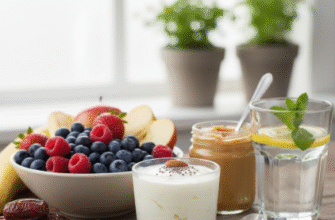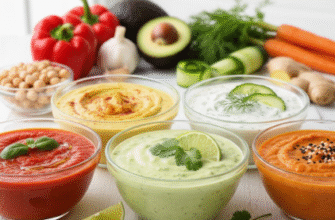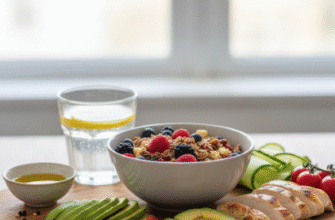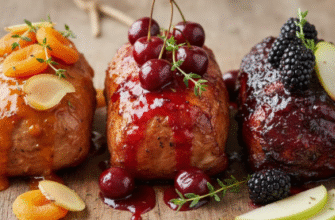Hitting the open road, windows down, music up – there’s a certain magic to a road trip. But let’s be honest, that magic can quickly fade when hunger strikes and the only options seem to be greasy fast food or questionable gas station snacks. Maintaining healthy eating habits while traveling long distances by car presents a unique challenge. The convenience of drive-thrus and the allure of sugary, salty treats at every pit stop can easily derail even the best intentions. However, with a little planning and strategy, you absolutely can fuel your adventure with nourishing foods that keep you energized and feeling good.
Forget resigning yourself to a diet of burgers and chips for the duration of your trip. Eating healthy on the road is entirely achievable, and it doesn’t have to be complicated or expensive. It’s about making conscious choices, preparing ahead, and knowing how to navigate the food landscape you encounter along the way. The payoff? More energy to enjoy your journey, avoiding that sluggish feeling that often accompanies poor food choices, and returning home feeling refreshed rather than depleted.
The Power of Preparation: Planning Your Road Trip Menu
Like any successful mission, a healthy road trip starts with planning. Before you even think about packing the car, take some time to think about your food strategy. This doesn’t mean you need a rigid, minute-by-minute meal plan, but having a general idea of what you’ll eat will save you time, money, and regret later.
Consider your route and duration: How long will you be on the road each day? Will you have access to accommodations with refrigerators or microwaves? Knowing this helps determine what types of food are feasible. For shorter trips or days with long driving stretches, easily accessible snacks and simple, no-cook meals are key. If you’re staying overnight somewhere with kitchen facilities, your options expand.
Map out potential stops: While spontaneity is part of the fun, having a rough idea of where you might stop can be helpful. Are there towns with grocery stores along your route? Knowing this allows you to plan for restocking fresh supplies like fruits, vegetables, or yogurt.
Do a pre-trip grocery run: This is perhaps the single most important step. Stock up on healthy staples before you leave. Trying to find specific healthy items at random roadside stores can be hit-or-miss and often more expensive. Buy shelf-stable items, as well as perishables you plan to eat in the first day or two.
Packing Your Mobile Pantry: Cooler and Snack Bag Essentials
Your car essentially becomes your kitchen on wheels during a road trip. Packing strategically makes healthy eating infinitely easier. Invest in a good quality cooler and plenty of ice packs (reusable ones are great). A separate bag or bin for non-perishable snacks keeps things organized and accessible.
Cooler Must-Haves:
- Water, water, water: Pack plenty of reusable water bottles and consider a large jug for refills.
- Fruits: Washed grapes, berries, apple slices, orange segments.
- Vegetables: Baby carrots, celery sticks, cucumber slices, bell pepper strips, cherry tomatoes.
- Protein: Hard-boiled eggs, Greek yogurt cups, cottage cheese single serves, pre-cooked chicken strips, cheese sticks or slices.
- Dips: Single-serving hummus packs, guacamole, or bean dip.
- Pre-made meals: Sandwiches, wraps, salads in jars (keep dressing separate).
Non-Perishable Snack Bag:
- Nuts and Seeds: Almonds, walnuts, cashews, pumpkin seeds, sunflower seeds (unsalted or lightly salted). Portion them into small bags.
- Dried Fruit: Raisins, apricots, mangoes (check for added sugar).
- Whole-Grain Crackers or Rice Cakes: Pair with nut butter or hummus.
- Nut Butter Packets: Convenient single servings of almond, peanut, or cashew butter.
- Trail Mix: Make your own to control ingredients or choose store-bought options wisely (watch the candy and sodium content).
- Protein Bars/Granola Bars: Read labels carefully! Look for options lower in sugar and higher in protein and fiber.
- Beef Jerky or Turkey Jerky: A good source of protein, but check sodium levels.
- Popcorn: Air-popped or lightly seasoned options.
- Roasted Chickpeas or Edamame: Crunchy and satisfying.
Preparation is paramount! A well-stocked cooler and snack bag are your greatest allies against unhealthy roadside temptations. Pack a variety of fruits, vegetables, lean proteins, and whole grains before you leave. Having easily accessible, healthy options within arm’s reach significantly increases your chances of sticking to your goals throughout the journey.
Simple & Satisfying Road Trip Meal Ideas
Eating full meals in the car doesn’t have to mean stopping for fast food. With your packed supplies, you can assemble simple, satisfying, and healthy meals right from your vehicle or at a scenic rest stop.
Sandwiches and Wraps Reign Supreme
The classic road trip meal for a reason! Use whole-wheat bread, pitas, or tortillas. Fill them with lean proteins like turkey, chicken, or hummus, add cheese if desired, and load up on veggies like lettuce, spinach, tomato, cucumber, and bell peppers. Make them ahead or assemble them fresh. Using lettuce wraps instead of bread is another great low-carb option.
Mason Jar Salads
These are fantastic for prepping ahead. Layer your ingredients strategically: dressing at the bottom, followed by hard vegetables (carrots, cucumbers, peppers), then grains or proteins (quinoa, chickpeas, chicken), and finally leafy greens on top. Kept upright in the cooler, they stay fresh and un-soggy until you’re ready to shake and eat.
Grain Bowls
Pre-cook a batch of quinoa, brown rice, or couscous. Pack it in containers in your cooler. When ready to eat, top it with pre-cut veggies, chickpeas or beans, nuts or seeds, and perhaps a simple vinaigrette you packed separately. It’s a versatile and filling option.
Breakfast Solutions
Don’t forget the first meal of the day! Overnight oats prepared in jars are easy if you have cooler space. Hard-boiled eggs offer a quick protein hit. Greek yogurt with fruit and nuts is another simple, no-cook choice. Even a piece of fruit with a handful of almonds can tide you over until a more substantial snack or meal.
Navigating Food Stops: Making Healthier Choices on the Fly
Even with the best planning, you might need to stop for food or supplies. Knowing how to make better choices at gas stations, convenience stores, and restaurants is crucial.
Gas Station Smarts
Look beyond the candy bars and chips. Many gas stations now offer surprisingly decent options:
- Fresh Fruit: Bananas, apples, and oranges are often available.
- Yogurt Parfaits or Cups: Check sugar content.
- Cheese Sticks or Babybel Cheese.
- Nuts and Seeds: Opt for unsalted varieties.
- Hard-Boiled Eggs.
- Water and Unsweetened Beverages: Choose these over soda or sugary juices.
- Pretzels or Whole-Grain Crackers: In moderation.
- Read Labels: If grabbing a packaged snack like a protein bar, take 30 seconds to check the sugar, protein, and fiber content.
Restaurant Realities
If you stop at a sit-down restaurant or fast-food place, you still have control:
- Look for Grilled Options: Choose grilled chicken or fish over fried varieties.
- Load Up on Veggies: Ask for extra lettuce and tomato on sandwiches, opt for salads (go easy on creamy dressings – ask for vinaigrette on the side), or choose vegetable side dishes.
- Control Portions: Consider ordering a smaller size, an appetizer as a meal, or splitting a larger dish.
- Skip Sugary Drinks: Stick with water, unsweetened iced tea, or diet soda occasionally.
- Be Mindful of Sides: Choose a side salad, fruit cup, or baked potato (plain) instead of fries.
Grocery Stores: Your Best Bet
If time permits and your route allows, stopping at a proper grocery store is the ideal way to restock healthy provisions. You’ll have a much wider selection of fresh produce, yogurt, healthy snacks, pre-made salads, and deli items than at a gas station.
Stay Hydrated, Stay Happy
It’s easy to forget to drink enough water when you’re focused on driving and sightseeing. Dehydration can lead to fatigue, headaches, and even mistaken hunger pangs. Keep your reusable water bottle filled and easily accessible. Sip frequently throughout the day. While coffee or tea can be fine in moderation, prioritize water. Steer clear of sodas, sugary energy drinks, and fruit juices, which add empty calories and can lead to energy crashes.
Listen to Your Body and Enjoy the Ride
While planning is essential, don’t be overly rigid. Part of the fun of a road trip is spontaneity, and that includes food sometimes! If you really want to try a local specialty or indulge in a treat, go for it. The goal is not perfection, but balance. Aim to make healthy choices most of the time, but don’t beat yourself up over occasional indulgences.
Pay attention to your hunger and fullness cues. Eat when you’re hungry, stop when you’re satisfied. Avoid mindless snacking out of boredom while driving – this is where having pre-portioned snacks helps. Take breaks to stretch your legs and eat meals away from the driver’s seat if possible, allowing you to eat more mindfully.
Ultimately, eating healthy on a road trip is about making conscious choices that support your well-being so you can fully enjoy the adventure. By packing smart, planning ahead, and making informed decisions at food stops, you can fuel your journey with delicious and nourishing foods, arriving at your destination feeling energized and ready for whatever comes next. Happy travels!








